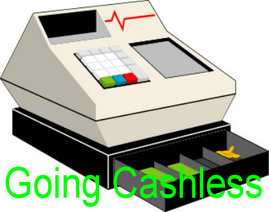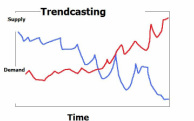
But, in the case of going cashless, the trend is becoming a reality faster than expected. And, with the advent of smartphones, tablets, and other wireless consumer gadgets, the possibility of paying without cash seems likely; but, it will not happen as fast as merchants would like. After all, if transactions are happening electronically, the cost per transaction goes down.
The key to the success of going cashless lies in NFC, (Near Field Communications). This is the technology that allows a smartphone or other wireless device to download credit card information by its proximity to a reader. So, when the customer gets to the checkout, the phone is just placed near the store reader and the appropriate amount is transferred to the store. And, as the price of readers comes down, more small stores will take advantage of this technology.
There is of course, a downside to the ease and accessibility of going cashless. All of the information being transferred to the reader is now multiplied by the number of times the process is used. So, each time the cashless option is selected, your information is going to a new source. The information that is critical to security is being processed and mined for information. But, the argument is that the same information is mined if you use a credit card. This is true, and continues to make us "at risk consumers". Advantage cash; when you pay with cash, you leave the store with a receipt and no one knows who you were. So, there is a price for the use of either the cashless reader, credit card, or online shopping.
There is a good article on the reader technology here. I would be happy if they just did away with the penny, but I still like cash...

 RSS Feed
RSS Feed
